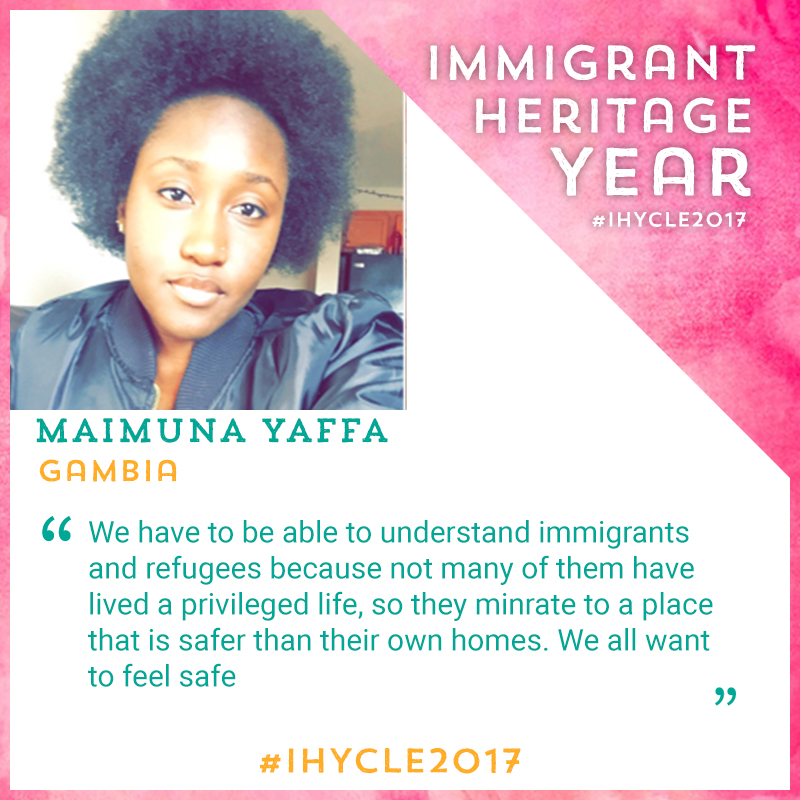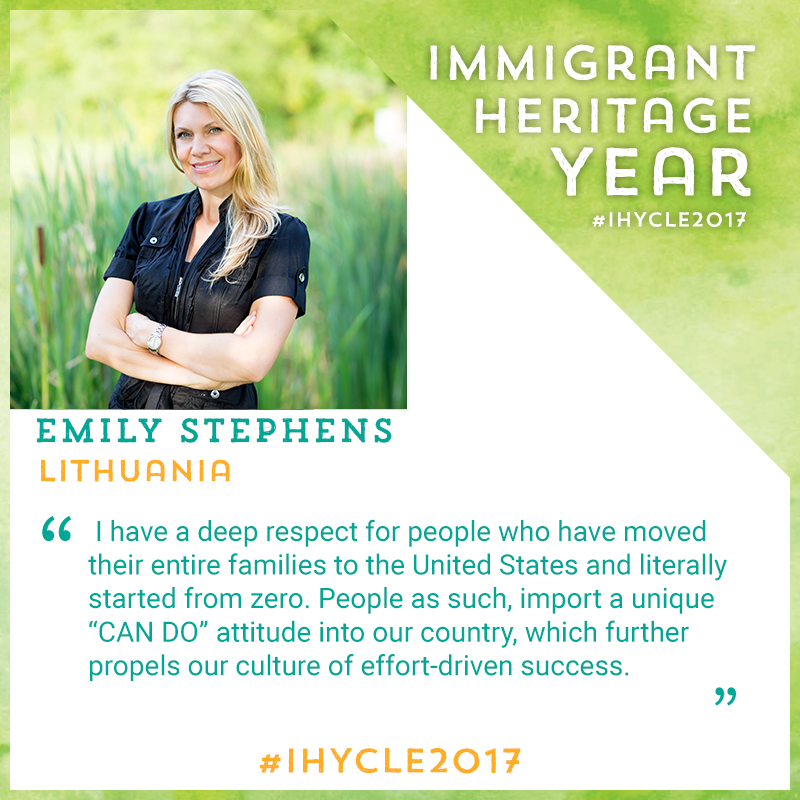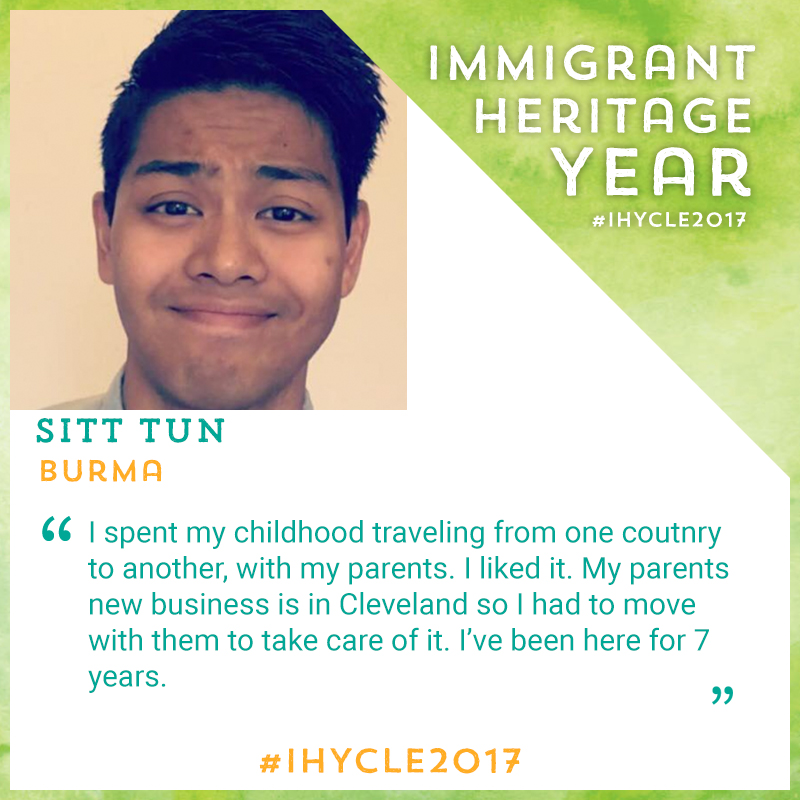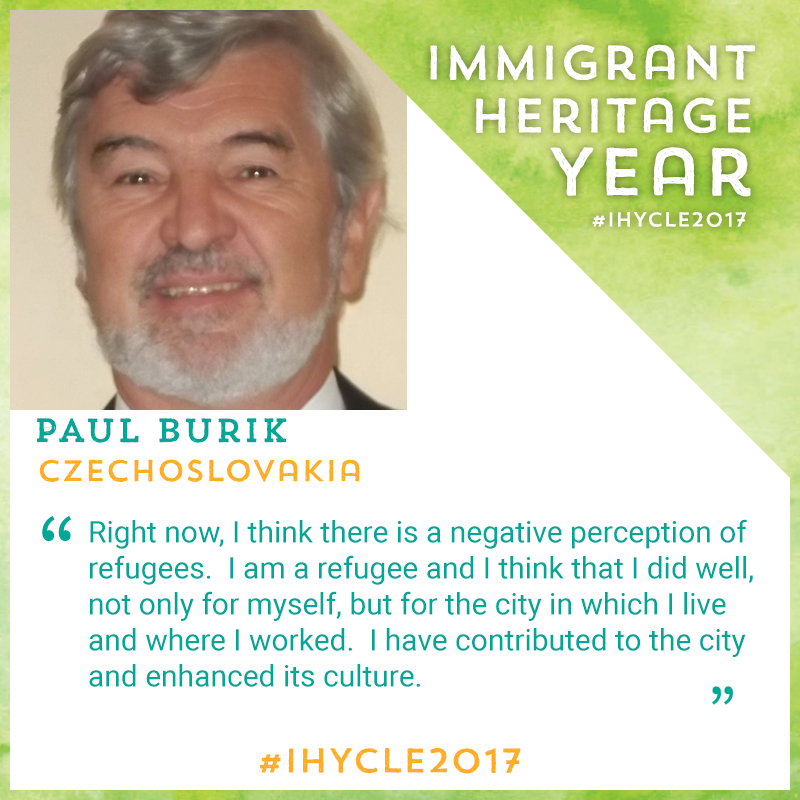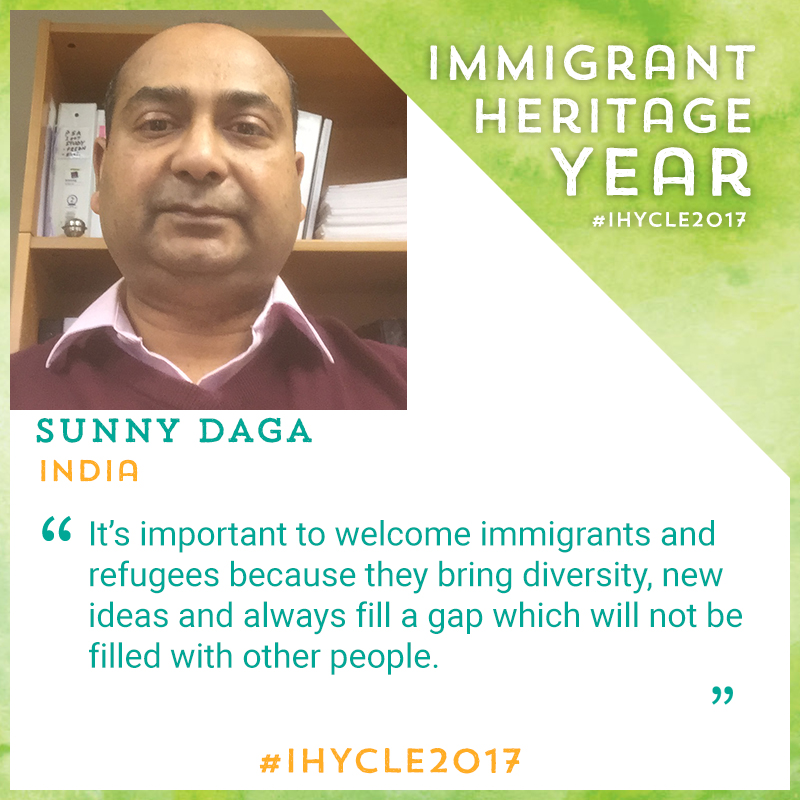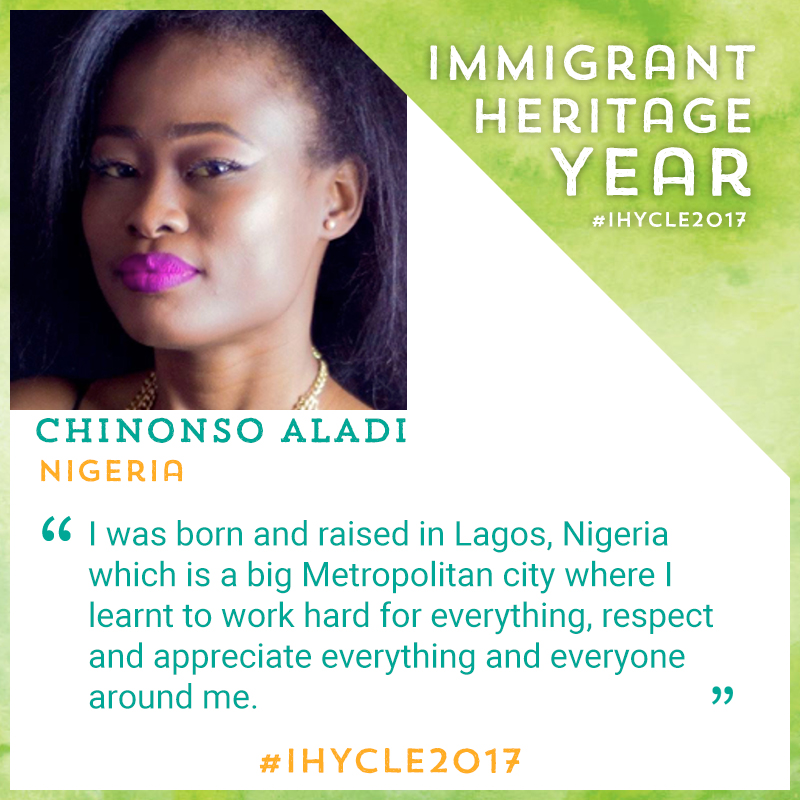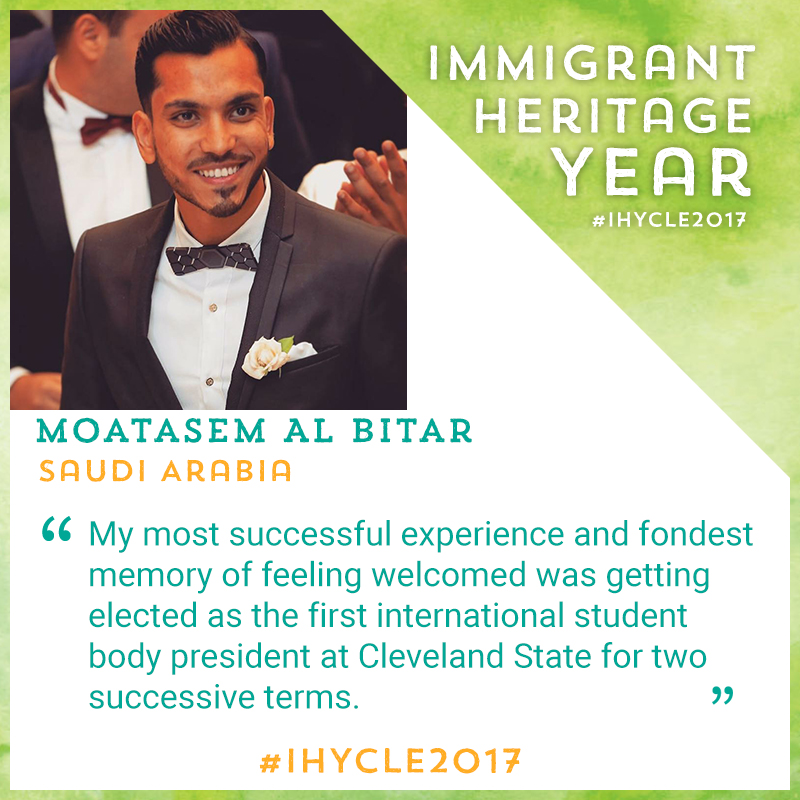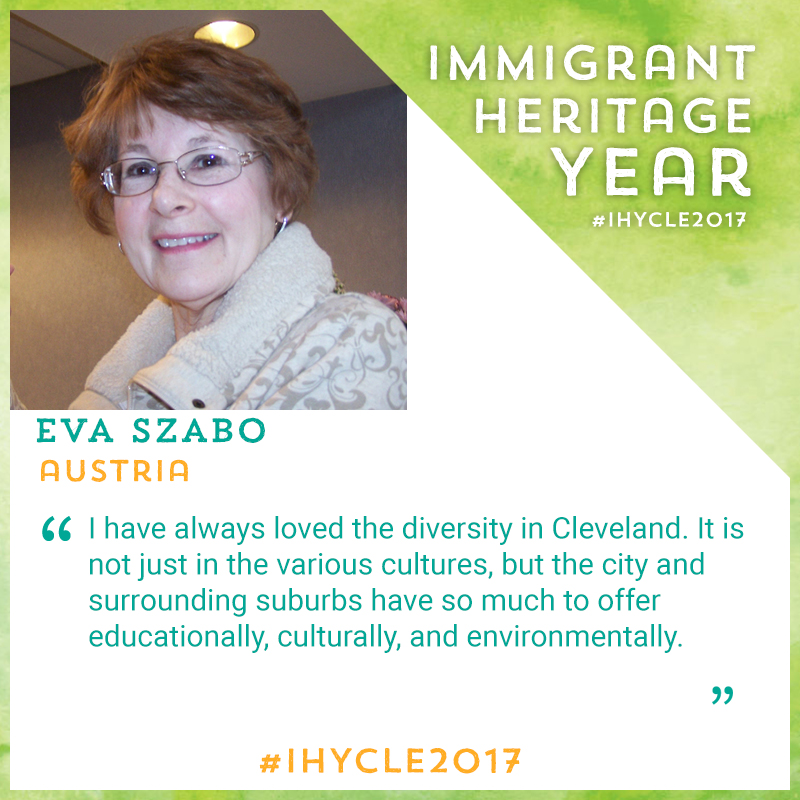Maimuna Yaffa
Where are you from?
I’m from The Gambia
What was your childhood like?
I moved to Saudi Arabia when I was 6 and lived there for 14 years. I did not spend my time outside playing as a child, I stayed at home majority of the time.
What brought you to Cleveland?
I currently live in Kent. I’m here on a student visa getting my Bachelor’s Degree.
What were your first thoughts about coming to the United States? Did those change?
I have the chance to study in a country with plenty of opportunities and no it has not changed.
What challenges did you face as transitioning here?
Interacting with others. As I have mentioned before, I was secluded growing up and I did not have the chance to interact with many people. I also struggled with being shy and this is a country where everyone talks to everyone.
What is your occupation?
Currently an undergraduate student
How have other Clevelanders made you feel welcomed?
Absolutely, I have met many Clevelanders that made me feel safe in a new environment.
What traditions or customs do you continue to practice?
This is not necessarily a tradition but I do practice being kind and compassionate to anyone I meet.
What do you love about Cleveland?
The love they have for their sport fans.
Why is it so important to welcome immigrants and refugees?
When any of us travel to a new place, we expect people to be kind towards us because we are not familiar with the setting. It is important to make other people feel welcome into our home because we are all trying to live a good life and we all do things we are not supposed to do. We have to be able to understand immigrants and refugees because not many of them have lived a privileged life, so they migrate to a place that is safer than their own homes. We all want to feel safe.
Why is it important to travel abroad?
For knowledge and experience.
Dr. Naveen Uli
Where are you from?
Originally from India, spent 10 years in New York City before moving to the Cleveland area. Greatly enjoying this region since then.
What was your childhood like?
I grew up in the southern part of India (small town of Manipal in the state of Karnataka). Our family would be considered lower middle class, father taught chemistry at an engineering college, mother homemaker. Went to excellent local schools until 12th grade, then went to the city of Mysore for medical education. I certainly had an enjoyable childhood, with excellent public education throughout my elementary and high school years, as well as medical education. I had a close-knit group of friends, and we used to play every evening in our local recreational facilities. Needless to say, we are all now dispersed over a wide area globally.
What brought you to Cleveland?
After completing my Residency training (Pediatrics) and Fellowship training (Pediatric Endocrinology) in NYC, I worked for 3 years in Brooklyn, NY. Visa restrictions forced me to move out of NY state, and job prospects brought me to Cleveland. Of the many choices before me, this city was the most appealing, mainly for its multicultural dimensions. An additional draw was that I am a great fan of South Indian classical ("Carnatic") music, and the biggest gathering of South Indian classical musicians outside India occurs every year here in Cleveland (the Cleveland Thyagaraja Festival, www.aradhana.org).
What were your first thoughts about coming to the United States? Did those change?
The 2 major areas that were initially challenging were "culture shock" and "climate shock". The former was not as daunting, because I had read enough about the United States, and also initially landed and spent 10 years in NYC, the multi-cultural melting pot that has always been very welcoming of immigrants. Coming from a tropical country from a region where climate extremes included high temperatures and heavy monsoon rains, "climate shock" upon arrival in the US, was real. However, the 10 years I spent in NYC allowed me to acclimatize gradually. Apart from the total amount of snowfall, the climate is really not that different between NYC and NE Ohio. If I had spent 10 years in the southern part of the US and then moved to Cleveland, I would have had greater difficulty adjusting to culture and climate.
What challenges did you face as transitioning here?
Upon our move here, I and my wife decided we would be here for the long haul. The first challenge was to find our cultural moorings as Indian immigrants, in order to facilitate our family lay down our roots here. The friendly mid-western attitude of our neighbors was very helpful. We also found that unlike in NYC, the size of the Indian community here was much smaller, allowing closer interactions between families and establishing stronger bonds.
What is your occupation?
Physician (pediatric endocrinologist at UH Rainbow Babies & Children's Hospital)
How have other Clevelanders made you feel welcomed?
Allowed me to contribute to the community I live in. I am on the Board of the Diabetes Partnership of Cleveland (located in Beachwood), and Medical Director of Camp Ho Mita Koda (summer camp for children with diabetes), which is located in Newbury, in Geauga county.
What traditions or customs do you continue to practice?
Hindu religious practices; cherish South Indian classical music.
What do you love about Cleveland?
The variety of public resources in so many different areas - music (Thyagaraja Festival, Cleveland Orchestra, Blossom), museums (CMA, CMNH, Botanical Garden), Metroparks, vibrant multi-ethnic food scene (with many options for vegetarians like us). My only wish is that Cleveland should really put our waterfront to multi-purpose use like Chicago. This will make the city a desired destination for way more people, both for localites and out-of-towners.
Why is it so important to welcome immigrants and refugees?
The more diverse the talent pool, the wider the range of ideas and skills, the better chance at success in a globalized marketplace.
Why is it important to travel abroad?
Meeting people across different cultures and nations and constantly exchanging ideas will expand business opportunities and bring people closer culturally.
Emily Stephens
Where are you from?
I am from Lithuania, one of the Baltic states that regained its freedom from the Soviet Union, communist Russia in 1991.
What was your childhood like?
I grew up in a small, quaint and beautiful health-resort in the southern-most part of Lithuania. Several hundred years ago, natural salt-water springs were tapped into for their myriad of health benefits, thus giving birth to Druskininkai. The word “Druska” means “salt," so in translation it would be “Salt Town.” Hotels and health-spas sprung up (no pun intended) all over town. By the late 1970’s Druskininkai was home to about ten thousand residents, whose main livelihood was health management, hospitality and tourism. Despite growing up under a communist regime, I had an unusually vibrant childhood. Thanks to my town’s close proximity to the borders of Poland and Belarus, it was like growing up in three countries all at once. Very early on in my life I developed an appreciation of different cultures, as there was an influx of visitors from other countries each month. People flocked to Druskininkai to relax, have fun and restore their health. The house where I grew up was situated smack in the middle of three hotels, one of them was the largest one in the entire town! To say that my back yard was unusual, is an understatement. Living in Druskininkai was like being on an international vacation every day! I enjoyed learning Russian and Polish, just so that I could interact with the tourists, with whom I had formed many friendships. I was sort of the “town chatter-bug,” the word “shy” did not exist in my vocabulary. My parents owned an excursion business called “Panorama," which provided day-tours and overnight getaways to historic sites throughout Lithuania. Panorama hosted travel groups from Azarbaijan, Armenia, Moldova and many others that were within the old Soviet Union. I enjoyed meeting people from all the varying countries and appreciating the unique cultural attributes of each.
What brought you to Cleveland?
In fourth grade, I started learning my fourth language: English. We were taught “King’s English,” where the R’s are not rolled in words such a far, car or expert, etc.. Yet, strangely, intuitively I was the only student that rolled the R’s like in vernacular American-English. Upon hearing that, my teacher gave me a peculiar look, paused to think, shook her head infinitesimally and just let me “roll with it” (again, no pun intended.) Learning English came to me so easily and naturally, that it was almost baffling. Since those were the days way before “mother internet,” I asked everyone and anyone as much information as I could gather about America, the country where the R’s were rolled which sounded oh so cool! Ah, the mind of a 10-year-old. I became obsessed with all-things-America, that my class mates would tease my by saying that I was “a little American born in Lithuania.” I thought it was funny and a great compliment all at once. Even though I wanted to travel to America with all my heart: the iron curtain of communism, lack of sufficient funds and the fact that I was an only child, were obstacles too tough to hurdle. Or were they?! Six years later, thanks to the unfolding of some semi-miraculous events in my life, I ended up on American soil, right here in Cleveland Ohio. Cleveland was not my particular destination of choice, but that of serendipity, as I had distant family connections from my great-aunt’s marriage in the 1950’s. An art and academic foreign-student scholarship was what had brought me here to the beautiful campus of Hawken Upper School, in Gates Mills, Ohio. I came here alone, my entire family eagerly awaiting my return in exactly one year. Little did we all know, that we would not see each other for six years since the day we parted.
What were your first thoughts about coming to the United States? Did those change?
I can relate my feelings to those of Alice in the classic tale of Alice in Wonderland, after falling into the rabbit hole. Within the very first year of being in the country of my dreams, I was flooded with a kaleidoscope of emotions: excitement, nervousness, elation, fear, joy, confusion, wonder, stress, happiness, panic, fun, surprise, longing, and aftershades of each.
What challenges did you face transitioning here?
Words such as: "outsider, xenophobia, different, all alone, language-barrier" were not easy to live with. Coming in as a Junior into a tight-knit private school in a world so radically different from my own, was like jumping into a giant tub of ice. It was a cultural shock. I was the foreign specimen, in a group that has never met anyone from the post-Soviet-Union. As communism and capitalism are polar opposites, so was I in comparison with my new classmates. I looked different, dressed “weird,” talked not as good-English as I had thought, I might as well have had green skin, as that’s what I felt that others saw in me. It took some time for me to get my bearings academically and then socially. That year of my life would probably be the one I would choose to skip, if I could, now that hind-sight is 20/20.
Thanks to the words that were in my personal vocabulary: "perseverance, commitment, grit, passion and resilience," I muscled through what was one of the most challenging years of my life. Yet, that was my price to pay, to assimilate in the country that I adored since fourth grade. I believe that each and every immigrant pays a “price,” and “initiation fee” of a sort, before they feel at home in America.
I no longer feel like Alice in Wonderland, my roots have taken deep into American soil and it is truly my home, a place where I was meant to be.
What is your occupation? Are you a member of a civic or social organization?
I graduated from Ursuline College, Magna Cum Laude with a degree in Accounting. Early on in my career I worked in sales, marketing and client management in the corporate retirement plan field. In 2004 I took time off to become a full-time mother for then my daughter Samantha (now 14) and son Dean (now age 12,) my third child Austin was born in 2006. I had my hands full! However, as a daughter of staunch entrepreneurs, I didn’t roll far from the tree. I own a small business creating delicious and visually unique cookies for special occasions. I started Cookie Art (CookieArtDesign.com) as my children were growing up and my relentless entrepreneurial spirit kept beckoning me to create. I am a proud and happy member of Global Cleveland and the Lithuanian Cultural Gardens.
How have other Cleveland’s made you feel welcomed?
With the exception of my very first year here in Cleveland, the rest was rather smooth-sailing. I enjoyed the compactness, versatility, affordability and mid-western conservative values of the city. The people were welcoming and friendly ( once they could understand me.) I worked extremely hard to shed as much of my accent as I could, so that nothing would be ‘lost to translation.” Mastering the language was instrumental in gaining acceptance at my new school, where I was then a senior. In my interactions with many immigrants here locally and with people abroad, I noticed their fear of “making a linguistic mistake,” and thus being shy to speak English. I made a point to everyone I spoke with “ to please correct me, if I said something incorrectly.” Upon hearing that disclosure, people kindly helped me build the local language skills that were the lifeline of my success in a country where I was all by myself since a young age of sixteen.
What traditions or customs do you continue to practice?
Cleveland has a large Lithuanian community, on East 185th street and Neff Road. It was there that I made my very first friendships which I treasure to this day. The Lithuanian community was like a bridge from the old world into the new, a comfort zone where I could turn to for “nostalgic safety and familiarity.” It was the place where I kept my Lithuanian traditions alive, while becoming assimilated in a land all so new. It is also a place where I made the connection with my husband Saul, who is a second-generation Lithuanian, and has been raised immersed in the Lithuanian culture. Many years later, our children attended Saturday school at the Lithuanian Club, where they learned the basics of the language, performed in a folk dance group “Svyturys" and learned about the beautiful customs of their heritage. I taught at the Lithuanian School for three years, as my way of expressing gratitude and to continue the traditions that make our culture unique and add international vibrancy to the Cleveland international community. I am a big fan of experiencing different cultures through cuisine. I keep the culinary traditions at home going strong, though my first-generation American children balk at some of the menu-items, such as the traditional pink “beet and root vegetable salad,’ pink cold beet soup (borscht) and herring smothered in a delicious mixture of oil, onions, carrots and dried porcini mushrooms. They do,however, immensely enjoy the Bonkukinas (tree cake)! It is a round, tall and akward looking, yet irresistibly delicious pastry/desert, which they like sharing with their friends. At the Gintaras restaurant, they enjoy traditional Lithuanian grated potato and meat dumplings - Cepelinai. Even though initially my children were reluctant to embrace their Lithuanian heritage, as they are growing older and have traveled there several times, it is amazing to see them identify with their Lithuanian roots and tell their friends about how much fun it is to have another country to belong to overseas.
What do you love about Cleveland?
Just as myself, Cleveland has changed a lot in the past 23 years since I’ve been here. It morphed from a ubiquitous industrial city of the mid-west into one of the most progressive cities in the country, by establishing itself as the health-care hub via world-renown Cleveland Clinic and University Hospitals. It has a vibrant cultural presence and great sports teams. I was thrilled to witness the Cleveland Cavaliers brining home the NBA Championship this past summer and the Cleveland Indians only one hit away from winning the World Series! I am truly happy to call Cleveland home. I have traveled to many cities around the world, and the ease of getting around Cleveland and its suburbs, the great selection of private and public schools, the Playhouse Square, The West Side Market, the Cleveland Orchestra, The Cleveland Art Museum, and many more establishments are the vibrant threads in the tapestry of our great city.
Why is it important to welcome immigrants and refugees?
People immigrate to “higher ground” propelled by their need for safety, economic necessity, sense of adventure, a career opportunity or a passion for a certain country, as it was in my case. No matter what their reasons are, we need to embrace our shared humanity and help people in need from whatever part of the world they come from. Immigrating here on my own was a long and convoluted experience that has made me who I am today. I have a deep respect for people who have moved their entire families to the United States and literally started from zero. People as such, import a unique “CAN DO” attitude into our country, which further propels our culture of effort-driven success. Immigrants bring with them not just suitcases with a few essentials and a small amount of “seed-money,” but also a tremendous appreciation of freedom and the amazing opportunities America offers to those willing to put in the hard work.
Why is it important to travel abroad?
My parents have instilled in me the love of travel and exploring other cultures. Even though travel in the old Soviet Union was limited to the fifteen countries that comprised it, they covered quite a vast and geographically and culturally diverse area. I remember vacationing in Sochi as a small child, and feeling like I was at the opposite end of the world. My husband Saul and our three children are avid travelers and enjoy learning about other cultures from the locals. As members of Global Cleveland, we have also had the world " travel to us." We have had the privilege and honor of hosting guests from Gabon, Mauritius and Saudi Arabia. By welcoming international visitors into our home, we are shattering cultural stereotypes and growing the global community which we are all a part of. There may be border lines that slice up the map this way and that, as each country is represented in a color of random choosing to distinguish it from others- but those connected shapes make up the vibrant mosaic of our world. Each piece has its own sound, taste, movement, voice and customs. By traveling abroad we gain perspective and understanding, that cannot be gained by simply reading about it or watching it on the screen. It is so intriguing to learn about other cultures and learn from them, because there are SO MANY WAYS TO LIVE A LIFE.
Sitt Tun
Where are you from?
Burma (Myanmar)
What was your childhood like?
I traveled to one country to another with my parents. I liked it.
What brought you to Cleveland?
My parents new business is in Cleveland so I had to move with them to take care of it.
What were your first thoughts about coming to the United States? Did those change?
I thought United States would be full of racisms but it’s not. Those definitely changed.
What challenges did you face as transitioning here?
Speaking English. But watching a lot of sitcoms helped me understand English.
What is your occupation?
Banker
How have other Clevelanders made you feel welcomed?
Yes, Clevelanders are nice. I’m a Clevelander now, since I’ve been here for 7 years.
What traditions or customs do you continue to practice?
I still practice Buddhist and eat Burmese food.
What do you love about Cleveland?
Everything. From sports to night clubs to people.
Why is it so important to welcome immigrants and refugees?
Because we are lost in the first few months that we’re here. People that are from here should warmly welcome all the immigrants and help them with this country’s culture.
Why is it important to travel abroad?
To see what’s out there, more than a box that we live in 24 hours a day 7 days a week.
Paul Burik
Where are you from?
I am from the Czech Republic. When we escaped, however, it was Czechoslovakia.
What was your childhood like?
My childhood was fairly normal. Growing up, I wasn’t ever very concerned with the communism in my country. I was more worried about if my bike would run properly than anything else. I participated in a lot of sports as a child. We didn’t have organized sports, but my dad taught me tennis and gymnastics.
What were your first thoughts about coming to the United States? Did those change?
In 1968, the Soviets invaded Czechoslovakia. Because we did have close family in America, we feared that our future was in jeopardy and we felt we needed to leave our country. After a few attempts, we managed to escape.
What were your first thoughts about coming to the United States? Did those change?
I came to the United States when I was a young boy at only 13. I thought that coming to the United States would be a huge adventure. Everyone behind the Iron Curtain kind of worshiped the U.S. We felt that we had been chosen when we found out we were able to come to the United States.
I was impressed by the size of things in the U.S. I came from a small town of 20,000 people. When I came to the U.S. through New York, I was overwhelmed by all the lights and the sheer size of things. In my town, we only had one school. I wondered how I would ever find my place in this country. However, we eventually adjusted. We realized that the country had its own problems. It was not gold-plated, as I had previously thought. We had to work at things to get ahead.
What challenges did you face transitioning here?
I was fairly young when I came to the U.S. and spoke some English. Before coming to the States, I had some basic English skills. However, adjusting to English was still challenging. My father also struggled with the language. However, we were both very multicultural. We probably had an easier time than most immigrants. I firmly believe that English needs to be the sole official language, being able to communicate nationwide is what makes this country great.
What is your occupation?
I spent most of my career as an architect for the city of Cleveland. I am now retired.
Are you a member of a fraternity, sorority, or any civic, religious or social organizations?
I am the past President of the Cleveland Cultural Garden Federation and am still a member. I have served on many committees, including the Planning Commission for the city of Avon. I started the French Creek Foundation and am a member of several ethnic organizations as well.
How have other Clevelanders made you feel welcomed?
In general, Clevelanders have been warm and receptive. My family worked primarily within the ethnic circles in the early years, but eventually we branched out. I believe it was important to become engaged with the rest of the city and give back to your community.
What traditions or customs do you continue to practice?
On Christmas Eve we have a fish dinner, which is traditional in the Czech Republic. We also celebrate St. Nicholas day on December 6. On that day, we exchange small gifts and stuff stockings. This is a big tradition in Europe, but is hardly heard of here.
What do you love about Cleveland?
I really enjoy being on the lake. It is a great opportunity to have the inland sea at your doorstep. I have learned to sail and greatly enjoy the lake. I was a skipper for a Sea Scout ship for many years and was a commodore of the Lorain Sailing Club.
Why is it important to welcome immigrants and refugees?
Immigrants and refugees bring skills, knowledge and culture. There are so many cultures in Cleveland that you can visit and learn about. You can learn so much about the world while still living in Cleveland by simply talking to those around you. When you know people individually, you look at news events differently than when you had no connection to them. It makes the world more personal to you.
Right now, I think there is a negative perception of refugees. I am a refugee and I think that I did well, not only for myself, but for the city in which I live and where I worked. I have contributed to the city and enhanced its culture. People shouldn’t view refugees as a source of potential trouble. Immigrants built this town, and we should not shy away from that. We should encourage it.
Jenneffer Lopez
Where are you from?
I am from the Dominican Republic.
What was your childhood like?
My childhood was pretty average highlighted by a series of moves from the Dominican Republic to New York City followed by a move to Cleveland.
What brought you to Cleveland?
My parents decided that Cleveland would be a better place to raise a family, being that New York was too fast paced and dangerous for small children.
What were your first thoughts about coming to the United States? Did those change?
I was super excited! I was only six at the time but I remember how thrilled I was to be coming to the states. My thoughts haven’t changed; I am grateful for the opportunities that I have been granted just because I live here.
What challenges did you face as transitioning here?
One of the major challenges that I faced was the language barrier, for I did not speak English as a child. The weather was also challenging, migrating from a tropical country in the middle of winter was a culture shock as a kid.
What is your occupation?
I am Project Manager for the President’s Office at Cuyahoga Community College
How have other Clevelanders made you feel welcomed?
I call Cleveland home, I’ve lived here the vast majority of my life and a Clevelander is a warm person with an inviting smile that on most days will say hi to a stranger.
What traditions or customs do you continue to practice?
We still speak Spanish at home, we celebrate Three Kings Day and we eat rice for dinner on most days.
What do you love about Cleveland?
I love the people and the small town atmosphere in a bigger city and of course the Cavs!
Why is it so important to welcome immigrants and refugees?
This country has so many resources and opportunities that otherwise others would not have access to. It is important for people from other places to be welcomed here because it will make a huge difference in their lives.
Why is it important to travel abroad?
Is important to be culturally diverse. Learning to appreciate differences through exploring other culture makes us better people.
Sunny Daga
Where are you from?
India
What was your childhood like?
It was normal- studious- but nothing inspirational.
What brought you to Cleveland?
I came to Cleveland to complete my MBA at CWRU
What were your first thoughts about coming to the United States? Did those change?
Coming to the best place………….we will find that soon.
What challenges did you face transitioning here?
Different culture, took almost 3-4 years to get used to this culture.
What is your occupation? Are you a member of a sorority, fraternity, or any other civic or social organization?
Business owner- no member of any other organization.
How have other Clevelanders made you feel welcomed?
YES
What traditions or customs do you continue to practice?
Regular customs/traditions that Indians would follow- like Diwali, being respectful to elders etc.
What do you love about Cleveland?
Cold weather, good warm hearted people.
Why is it so important to welcome immigrants and refugees?
They bring diversity, new ideas and always fill a gap which will not be filled with other people.
Why is it important to travel abroad?
To get to learn another culture.
Chinonso Aladi
Where are you from?
I am from Imo State, Nigeria.
What was your childhood like?
My childhood was a lot of fun, I was born and raised in Lagos, Nigeria which is a big Metropolitan city where I learnt to work hard for everything, respect and appreciate everything and everyone around me.
What brought you to Cleveland?
I moved to the Cleveland area because of Kent State Fashion School, I had read reviews about it being the best in the country and it definitely is.
What were your first thoughts about coming to the United States? Did those change?
My first thought about coming to the US was everywhere would be like New York City, filled with skyscrapers and people. I was so disappointed when the first city I lived in was real country. My views about the US changed after I discovered there are different stories, people and things that make America unique in its on way.
What challenges did you face as transitioning here?
One of the many challenges I encountered was a lot of people having a belief that an "African" couldn't speak English or was from a poor and starving nation. A lot of people did not even know where Nigeria was on the map. One of the other challenges was the cultural shock and different seasons. But, seeing snow for the first time was pretty cool.
What is your occupation?
I am a full time student at Kent State and also work at the Center for Student Involvement on campus part time.
How have other Clevelanders made you feel welcomed?
Clevelanders are really friendly and it’s nice to know some of them are willing to have conservations with you about my background.
What traditions or customs do you continue to practice?
I continue to cook my local dishes, play the music and practice my religion.
Why is it so important to welcome immigrants and refugees?
It’s important to welcome immigrants because you never know what struggle made them leave everything behind to start over.
Why is it important to travel abroad?
Traveling teaches you more about the world than a textbook or a media outlet will. It opens your mind to different people, culture and customs. So it is important to travel abroad because you learn and in the process cultivate an open mind.
Moatasem Al Bitar
Where are you from?
I am from Alexandria, Egypt born in Jeddah, Saudi Arabia.
What was your childhood like?
My childhood has been traveling back and forth regularly between Egypt and Saudi Arabia. I attended an international school for 11 years.
What brought you to Cleveland?
Initially, my academic goals were to pursue a medical career with the Cleveland Clinic Foundation.
What were your first thoughts about coming to the United States? Did those change?
First thoughts were being skeptical of how successful I'd be to assimilate in the U.S. while maintaining my own culture, identity and set of values. This skepticism has changed to optimism based on achievements and experience.
What challenges did you face transitioning here?
My biggest challenge was to pack my bags, leave my family and start a new challenge in a completely foreign environment to me. I transferred here and did not have any connections or family members in Cleveland. I basically had to start my way up with absolutely no assistance or guidance.
What is your occupation? Are you a member of a sorority, fraternity, or any other civic or social organization?
I am currently pursuing a full-time position as I had recently graduated with a double masters degree in global politics and global business in management and human resources. I was a member/officer of a number of organizations at Cleveland State like Student Government, Arab Student Union, Muslim Student Association. I am also a member of Phi Sigma Iota honor society for foreign languages. In Cleveland, I am an active member of a number of International, Middle Eastern and Arab organizations. I am a regular participant in events and function of Global Cleveland and the Cleveland Council on World Affairs.
How have other Clevelanders made you feel welcomed?
My most successful experience and fondest memory of feeling welcomed was getting elected as the first international student body president at Cleveland State for two successive terms.
What traditions or customs do you continue to practice?
I regularly attend events organized by the Egyptian, and Arab, community in Cleveland, including holiday celebrations, social gatherings etc. I am a regular attendee of services held by several mosques in Cleveland. I also practice soccer regularly, currently competing in three different leagues.
Why is it so important to welcome immigrants and refugees?
Refugees and immigrants bring in new ideas; new ideas means new ways and opportunities; new opportunities means progress and advancement. This pretty much applies to all aspects of life.
Why is it important to travel abroad?
"Travel is the only thing that you buy that makes you richer"...
Eva Szabo
Where are you from?
I was born after World War II in Innsbruck, Austria to Hungarian born parents, refugees from Hungary.
What was your childhood like?
My childhood was very happy, poor, but happy. I distinctly remember having school children shout the words “DP, DP” at me while very young. I also remember one instance when someone threw pebbles at me, shouting the same. Although the U.S. is the land of immigrants, prejudices did exist, especially against a country which was on the losing side of WWII. Otherwise, I always felt safe, because we were living in safe times. I always was welcomed in new schools – there were many. My parents moved 10 times between 1951 and 1962, when they were finally able to afford a loan for their first house.
What brought you to Cleveland?
I arrived with my parents and sister at age three to America.
What were your first thoughts about coming to the United States?
I was too young to remember.
What challenges did you face as transitioning here?
From what I remember, I had a terrible time with the language. I was slow in starting to speak (age 3) which was right around the time we emigrated. Then, at age 5, when I went to kindergarten, I had major difficulties with English. By grade three, however, I had become a good student.
What is your occupation?
I am a retired school teacher (23 years) and a small business consultant now for 40 years.
How have other Clevelanders made you feel welcomed?
Kids in the schools I attended were always welcoming. Friends of my parents, as well as parents of my school friends were welcoming.
What traditions or customs do you continue to practice?
I still espouse many cultural traditions and customs, such as the ones revolving around religious holidays. I also cherish and guard Hungarian handcrafts and fine porcelain. I believe I have become richer by doing this. Cleveland is the perfect place for this since it has a relatively large Hungarian population.
What do you love about Cleveland?
I have always loved the diversity in Cleveland. It is not just in the various cultures, but the city and surrounding suburbs have so much to offer educationally, culturally, and environmentally.
Why is it so important to welcome immigrants and refugees?
The “welcome mat” provides an immigrant with a steady assurance of acceptance, which eventually helps with the assimilation process. The step towards assimilation helps the individual as well as the society as a whole.
Why is it important to travel abroad?
By traveling elsewhere, one recognizes the vast differences among the people, but also recognizes the ONE similarity: we are all alike as human beings and fundamentally are the same. It is only the environment and culture manifested outwardly that make us different.

